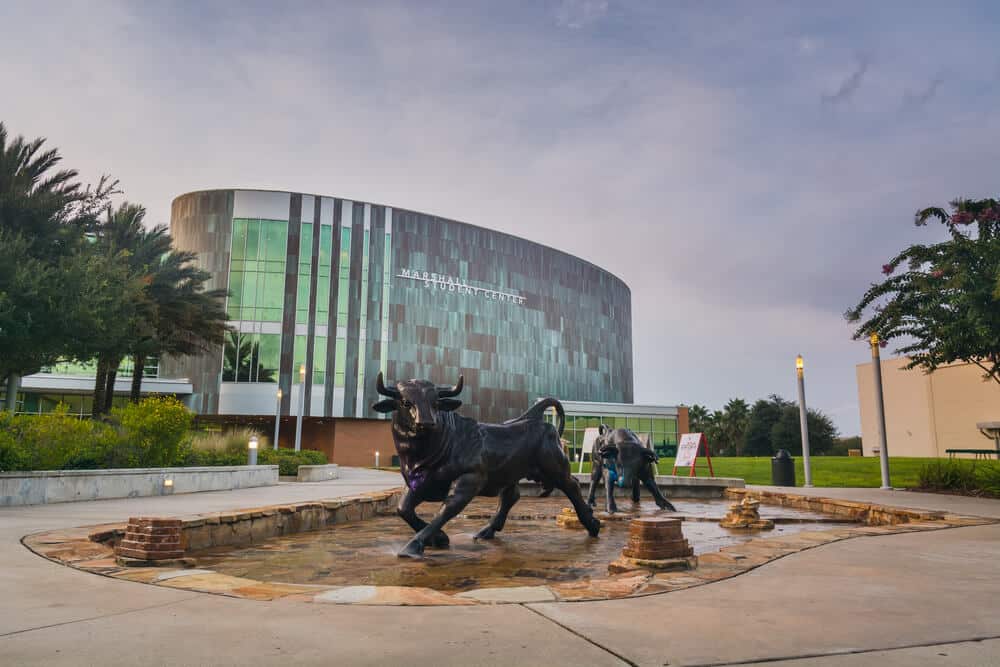The Role of Residential Treatment Centers in South Florida’s Opioid Epidemic

South Florida, renowned for its vibrant communities and picturesque landscapes, faces a pressing challenge—the opioid epidemic. As this crisis continues to impact individuals and families across the region, the role of residential treatment centers becomes increasingly pivotal in addressing the complex web of issues surrounding opioid addiction.
In this blog post, we’ll delve into the specifics of South Florida’s opioid epidemic, explore the unique challenges it presents, and discuss how residential treatment centers are playing a crucial role in offering hope, healing, and a path to recovery.
Understanding South Florida’s Opioid Epidemic:
South Florida, like many regions in the United States, has not been immune to the devastating effects of the opioid epidemic. Opioid addiction, fueled by the misuse of prescription painkillers and the rise of illicit substances like heroin and fentanyl, has led to a surge in overdose-related deaths and a myriad of social and economic consequences.
Key Challenges of the Opioid Epidemic in South Florida:
1. High Rates of Overdose: South Florida has witnessed alarming rates of opioid-related overdoses, placing a significant strain on emergency medical services and healthcare infrastructure.
2. Impact on Families and Communities: The ripple effects of opioid addiction extend beyond the individual, affecting families, communities, and the overall social fabric. The epidemic has strained relationships, increased crime rates, and contributed to the breakdown of social support systems.
3. Accessibility to Opioids: The accessibility of opioids, both prescription and illicit, poses a substantial challenge. Prescription painkillers are often overprescribed, contributing to the initial stages of opioid misuse that can later escalate to addiction.
4. Co-Occurring Mental Health Issues: Many individuals struggling with opioid addiction also face co-occurring mental health issues. The intersection of substance use and mental health disorders complicates the treatment landscape, requiring integrated and comprehensive approaches.
The Vital Role of Residential Treatment Centers:
Amidst the complexities of the opioid epidemic, residential treatment centers in South Florida emerge as beacons of hope and recovery. These centers play a multifaceted role in addressing the specific challenges posed by opioid addiction and offering tailored interventions to those in need.
1. Comprehensive Detoxification Programs:
Residential treatment centers in South Florida provide comprehensive detoxification programs to address the physical dependence on opioids. Medically supervised detox ensures a safe and supportive environment for individuals to navigate the challenging withdrawal process. The 24/7 medical support offered in residential settings is crucial in managing withdrawal symptoms and preventing potential complications.
2. Intensive Therapeutic Interventions:
Opioid addiction is often entwined with complex psychological and emotional factors. Residential treatment centers offer intensive therapeutic interventions, including individual counseling and group therapy, to address the underlying issues contributing to opioid misuse. These sessions help individuals develop coping mechanisms, resilience, and a deeper understanding of the factors driving their addiction.
3. Dual Diagnosis Treatment:
A significant percentage of individuals struggling with opioid addiction also grapple with co-occurring mental health issues such as depression, anxiety, or trauma. Residential treatment centers in South Florida are equipped to provide dual diagnosis treatment, addressing both substance use and mental health disorders simultaneously. This integrated approach is crucial for achieving long-term recovery and preventing relapse.
4. Structured Environment and Removal from Triggers:
The structured environment of residential treatment centers serves as a protective cocoon for individuals recovering from opioid addiction. By removing individuals from the environments and triggers associated with substance use, residential settings create a space for focused introspection and healing. This separation from the external factors that contribute to addiction is instrumental in breaking the cycle of misuse.
5. Community Support and Peer Interaction:
The sense of community within residential treatment centers is a powerful catalyst for recovery. Individuals undergoing similar challenges come together to share experiences, provide mutual support, and form connections that extend beyond the treatment period. The camaraderie fostered in these communities helps combat the isolation often experienced by those struggling with addiction.
6. Holistic Approaches for Holistic Healing:
Residential treatment centers in South Florida often incorporate holistic approaches to address the multifaceted nature of opioid addiction. Activities such as yoga, mindfulness meditation, art therapy, and fitness programs contribute to holistic healing, promoting physical, mental, and emotional well-being.
7. Aftercare Planning and Continued Support:
The journey to recovery doesn’t end with the completion of a residential treatment program. Recognizing this, residential treatment centers in South Florida emphasize aftercare planning and continued support. Transitioning back to daily life can be a vulnerable period, and ongoing support, including outpatient services and support groups, plays a crucial role in maintaining long-term sobriety.
The Unique Landscape of South Florida:
South Florida’s unique landscape presents both challenges and opportunities in the battle against the opioid epidemic. The accessibility to opioids, coupled with the region’s diverse demographic and cultural factors, requires targeted and culturally competent interventions. Residential treatment centers in South Florida are attuned to these nuances, tailoring their programs to address the specific needs of the community they serve.
Real Stories of Recovery:
To illustrate the impact of residential treatment centers in South Florida, let’s explore the stories of two individuals who found hope and healing through these programs:
Sophie’s Journey to Recovery:
Sophie, a 28-year-old South Florida resident, had been struggling with opioid addiction for several years. Her addiction began with the misuse of prescription painkillers, leading to a downward spiral of dependence on illicit opioids. Recognizing the urgent need for help, Sophie sought assistance from a residential treatment center in South Florida.
The comprehensive detoxification program provided Sophie with the medical support needed to navigate the withdrawal process safely. As she progressed through the intensive therapeutic interventions, Sophie gained insights into the underlying issues contributing to her addiction. The structured environment and community support played a crucial role in her recovery journey, offering a foundation for sustained sobriety.
Today, Sophie is a testament to the transformative power of residential treatment. She has successfully completed the program, embraced a holistic approach to her well-being, and remains actively involved in aftercare planning and support groups.
Colton’s Path to Healing:
Colton, a 35-year-old South Florida resident and father of two, faced the dual challenges of opioid addiction and co-occurring anxiety. The interconnected nature of his struggles necessitated a comprehensive and integrated treatment approach. Colton found solace and support in a residential treatment center that specialized in dual diagnosis treatment.
The center’s emphasis on addressing both substance use and mental health disorders allowed Colton to work on the root causes of his addiction. The holistic approaches, including mindfulness meditation and art therapy, provided him with alternative avenues for self-expression and stress management. Colton’s journey exemplifies the effectiveness of a personalized and integrated approach in overcoming the complexities of opioid addiction.
Conclusion: A Beacon of Hope in South Florida:
As South Florida grapples with the challenges posed by the opioid epidemic, residential treatment centers stand as beacons of hope, providing a lifeline to those in need. The comprehensive and individualized nature of the interventions offered by these centers addresses the unique complexities of opioid addiction.
Through detoxification, intensive therapy, community support, and holistic approaches, residential treatment centers in South Florida play a vital role in breaking the chains of opioid dependence. The stories of individuals like Sophie and Colton exemplify the transformative power of these programs, offering not only recovery from addiction but also a pathway to a healthier and more fulfilling life.
In the collaborative efforts to combat the opioid epidemic, the role of residential treatment centers cannot be overstated. By providing a sanctuary for healing, fostering community support, and offering tailored interventions, these centers contribute to reshaping the narrative of addiction in South Florida. In the face of adversity, they become catalysts for change, empowering individuals to reclaim their lives and build a future free from the grips of opioid addiction.





